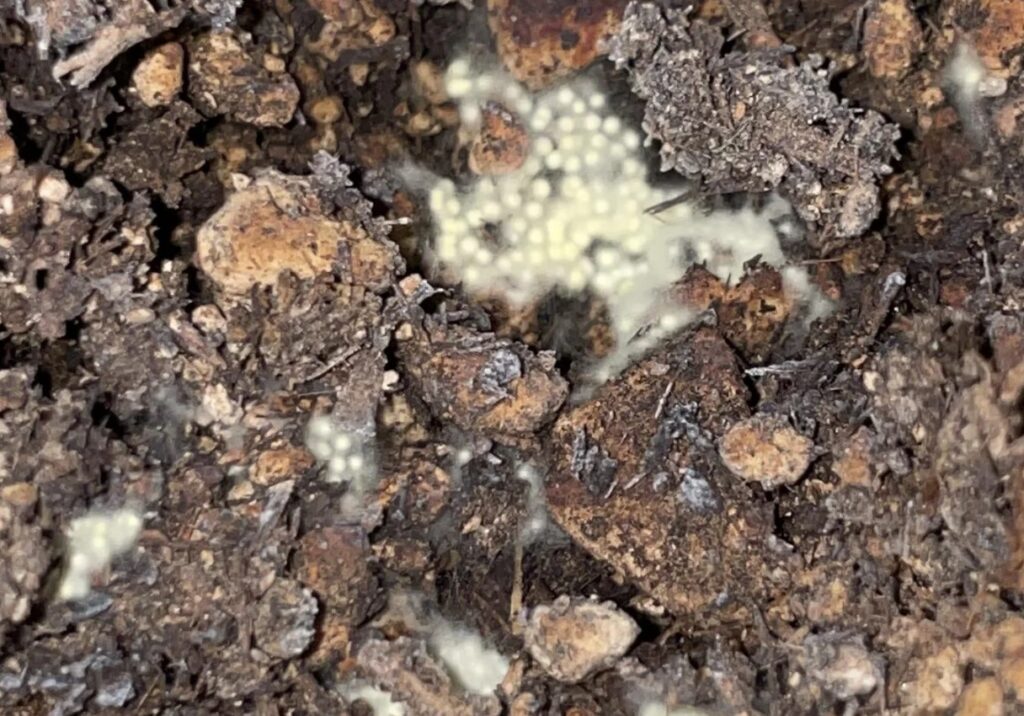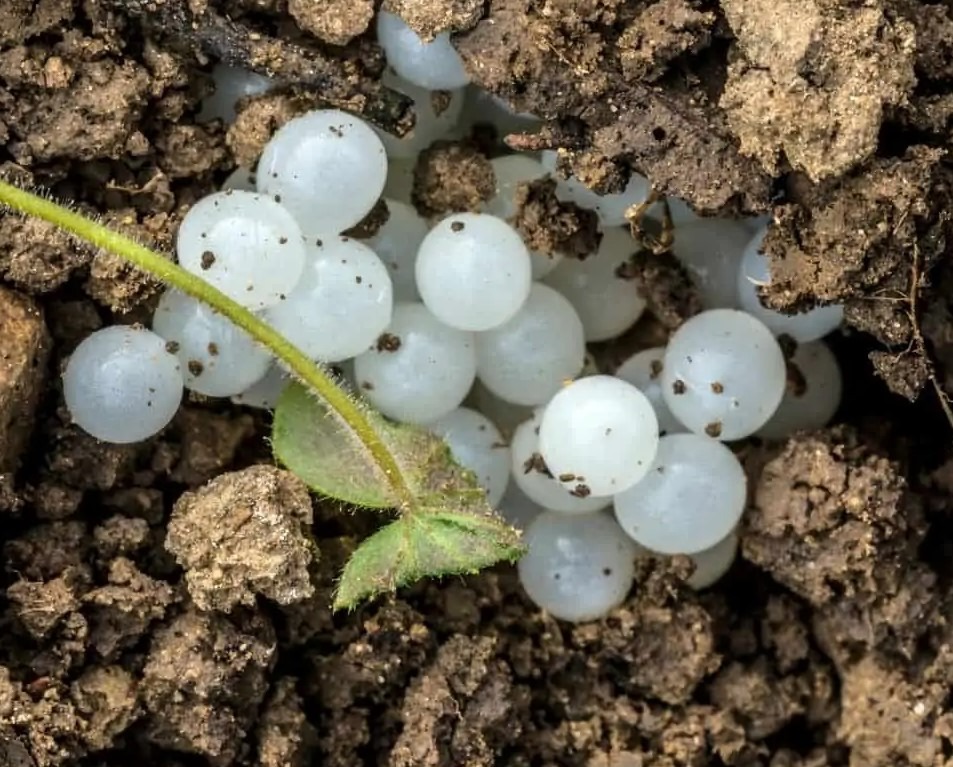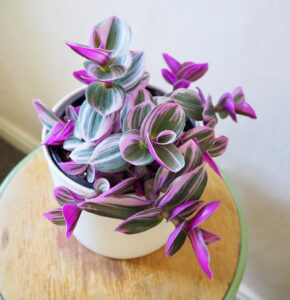Spider eggs in plant soil can wreak havoc on your garden and home. Fortunately, there are steps that you can take to identify and eradicate them quickly. Follow this guide to learn the signs of eggs, how to get rid of them, and how to prevent future infestations.

Identify whether or not spider eggs are present in your soil.
Spider eggs often look like small masses of white, pearl-like beads in the soil. If you suspect that you have spider eggs in your soil, you’ll need to take a closer look to confirm their presence. To do this, remove some of the soil from the affected area and place it on a white plate or tray so that you can check for spiders more easily.
If spider eggs are detected, mix together neem oil and water.
Once you have confirmed the presence of spider eggs in your soil, you will need to take swift action to get rid of them. Natural solutions are best, as they are non-toxic and will not harm other living organisms in the soil. One effective way to do this is by mixing together neem oil and water. Simply mix 1/4 teaspoon of neem oil with 1 quart of water, and then pour the mixture onto the affected area. Be sure to cover all of the soil so that all eggs are destroyed before they hatch.
Sprinkle the neem oil solution on your soil to kill any spider eggs found there.
Pour the solution carefully from a watering can or garden sprayer to ensure that it covers all of the affected areas. Be sure to wet the soil down to the root level, where most of the spider eggs will be found. While this process won’t kill adult spiders, it will help you control their population and keep them away. Leave the solution on for about an hour before rinsing off with clean water.
Monitor the soil periodically for undesired pests, such as wasps and ants, which may cause additional damage to plants.
Since spiders often lay their eggs in the soil, it’s important to check your plants frequently for signs of spider eggs or webs; this may include discoloration, patterns of webbing, or even dirt mounds near the plants. It’s a good idea to monitor the soil periodically for undesired pests, such as wasps and ants, which may cause additional damage to plants. If you find any of these signs, find a natural way to repel them without causing further harm.
Reapply the solution when necessary in order to ensure no further harm is done by spiders or their eggs on your plants and soil health.
Repeated applications of natural predators, such as ladybugs or nematodes, may be necessary to ensure the pest population is eliminated. Be sure to reapply the solution once every few weeks when necessary, in order to prevent eggs from hatching and resulting in further damage. Additionally, pay close attention to any changes you observe in the areas around your plants – watch for small webs or dirt mounds that may indicate there are new pests present.



